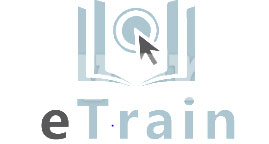Description
Go beyond the basic mechanics of SQL Server and learn how to create and deploy database solutions for an enterprise-class environment with the MCSE SQL Data Platform course. Once this intensive, hands-on course has been completed, database analysts and developers will have the knowledge and skills required to implement and develop robust and efficient SQL server solutions.
By completing this course students will fully understand the concepts behind Microsoft SQL Server and how to build and query complex database solutions in a real world environment. From the core fundamentals of installing and configuring SQL Server, through to querying data directly using T-SQL and on to building and developing enterprise class data platforms, students will gain a complete understanding of the database system and how it can be extended to meet the data needs of the modern enterprise.
This course is best suited to:
SQL Server database developers and analysts who need to know more about the advanced functions included in the platform.
Systems administrators and engineers who will be responsible for managing advanced SQL Server deployments.
Individuals who want to cross-train for a new career in database management and development.
Using a seamless blend of instructor led videos and self-study resources, the MCSE SQL Data Platform course is delivered online using the learning platform. All course materials are available anyplace anytime so that learners can study whenever and however best suits them. A built-in social networking platform also allows learners to ask questions and share knowledge and experience with their peers, providing additional opportunities for learning.
After completing the course students can expect to boost their job prospects and employability as they acquire new expert-level database management skills and experience in SQL Server.
KEY LEARNING POINTS
Using five in-depth modules, participants will learn all the skills and knowledge required to pass the MCSE Data Platform exams and prepare them for a successful career in database management and development.
Early modules cover T-SQL and SQL Server installation and management, before taking students on to learning about enterprise deployment scenarios that use SQL Server data warehousing to provide the back-end infrastructure for BI applications:
Mastering data using Master Data Services.
Ensuring data accuracy using Data Quality Services to reduce instance of incomplete or duplicate data being collected and saved.
Managing, configuring and deploying SQL Server Integration Services (SSIS) packages to automate and extend BI functionality.
Perform data manipulation, transformation and integration operations to collate information from multiple sources, including custom applications and third party data stores.
Troubleshooting data integration and quality issues to ensure data accuracy for use in reports and line-of-business applications.
Building on the understanding of how SQL Server works, participants will then learn how to extend functionality programmatically:
Creating and altering tables, constraints, data types, indexes and scalar functions using T-SQL to further improve data access options.
Designing and building advanced solutions that deliver the concurrency, integrity and reliability demanded by enterprise-class database applications, and how to split processing efficiently between servers and clients.
Optimising data and data access routines to improve efficiency and resource load balancing ready for use with custom BI applications.
Using performance and system information to implement a continual maintenance and improvement program that drives greater efficiency in the long term.
The final module then combines all of the techniques learned so far, applying them to the question of designing and developing database solutions that meet the most demanding business requirements:
Using data compression techniques to maximise available storage and bandwidth.
Building database models using lock granularity and search strategies to better meet specific business needs.
Designing and constructing full-lifecycle database environments that consider expansion, upgrade and migration needs from the outset.
Applying automation to streamline management and data processing, reducing administrator workloads.
Students will also study other modules that introduce basic concepts, such as the use of T-SQL to access and manipulate data, and installing and managing the SQL Server database platform. The course ensures that database analysts and designers gain a 360º overview of SQL Server, necessary for building robust BI and data warehousing systems.
ADVANTAGES OF THIS COURSE
Web-accessible course materials allow students to follow the course at their own pace, in their own time, so they are never again “left behind”. The MCSE SQL Server Data Platform course is essential for database developers and analysts who need:
An in-depth understanding of SQL Server design principles and how to build suitable database systems using Microsoft technologies.
The tools, techniques and knowledge required to access and manipulate data efficiently.
The knowledge, skills and techniques required to build powerful applications using SQL Server technologies.
Full understanding of the install, configuration and maintenance procedures required to deliver optimum SQL Server performance and reliability.
Design, deploy and manage an advanced SQL Server data warehouse that will meet the changing needs of a real world enterprise.
Completion of this course also fully prepares database designers and data analysts for the SQL MCSA/MCSE exams.
Units of Study
Microsoft 70-461: Querying SQL Server 2012
Microsoft 70-462: Administering SQL Server 2012 Databases
Microsoft 70-463: Implementing a Data Warehouse with SQL Server 2012
Microsoft 70-464: Developing Microsoft SQL Server 2012 Databases
Microsoft 70-465: Designing Database Solutions for Microsoft SQL Server 2012







Suddala –
Instructor teaches very well, Nowhere we get this much stuff in this cost.